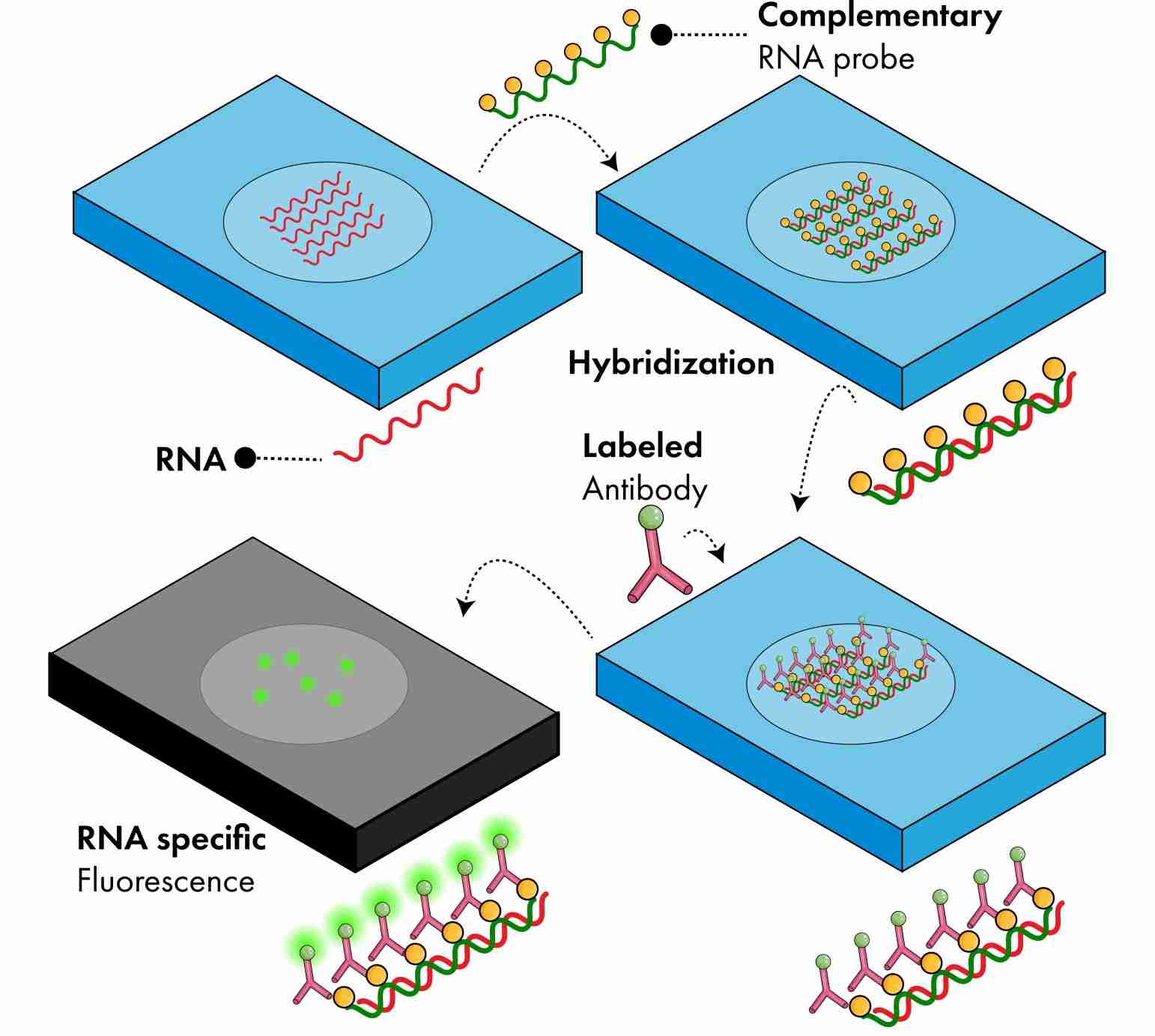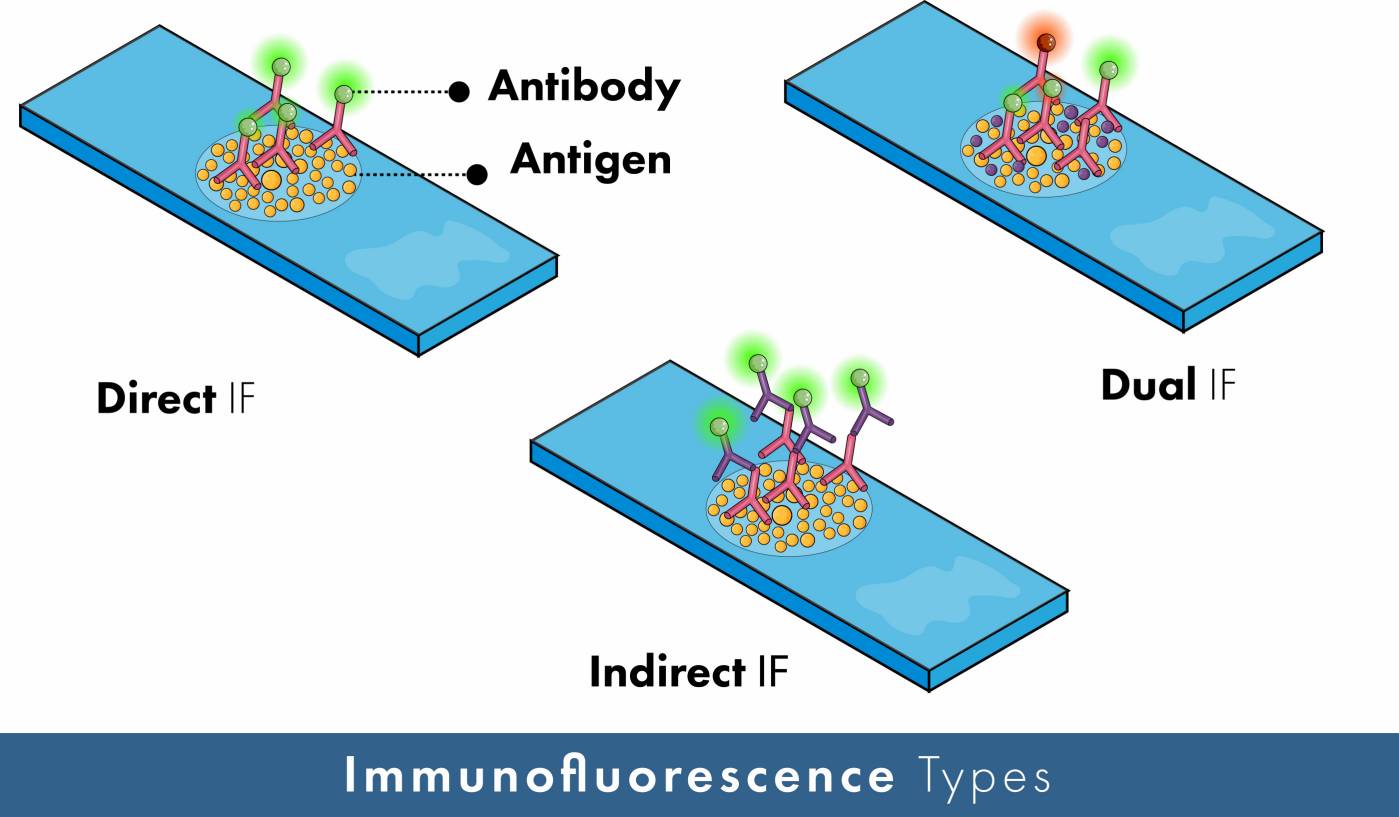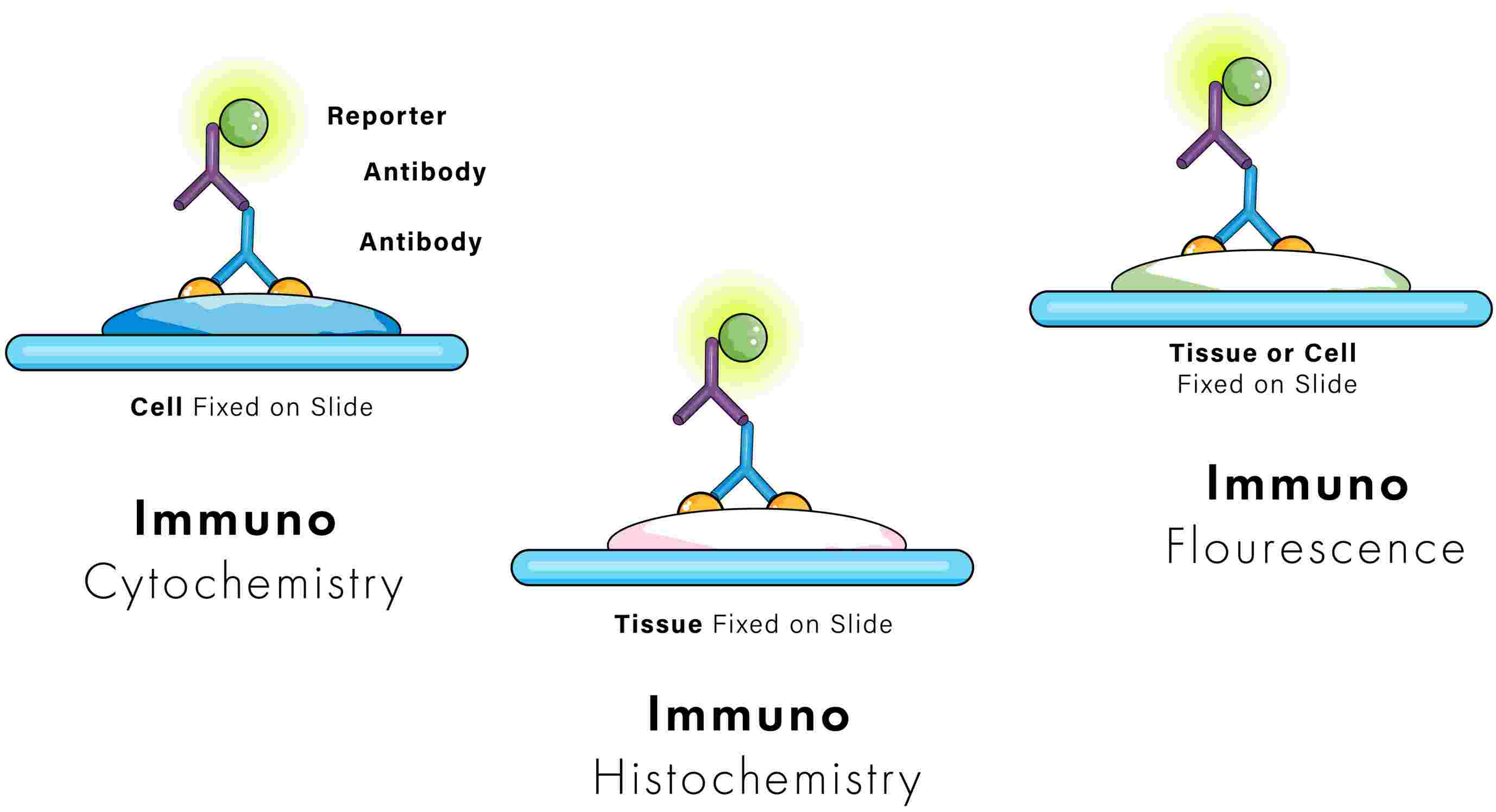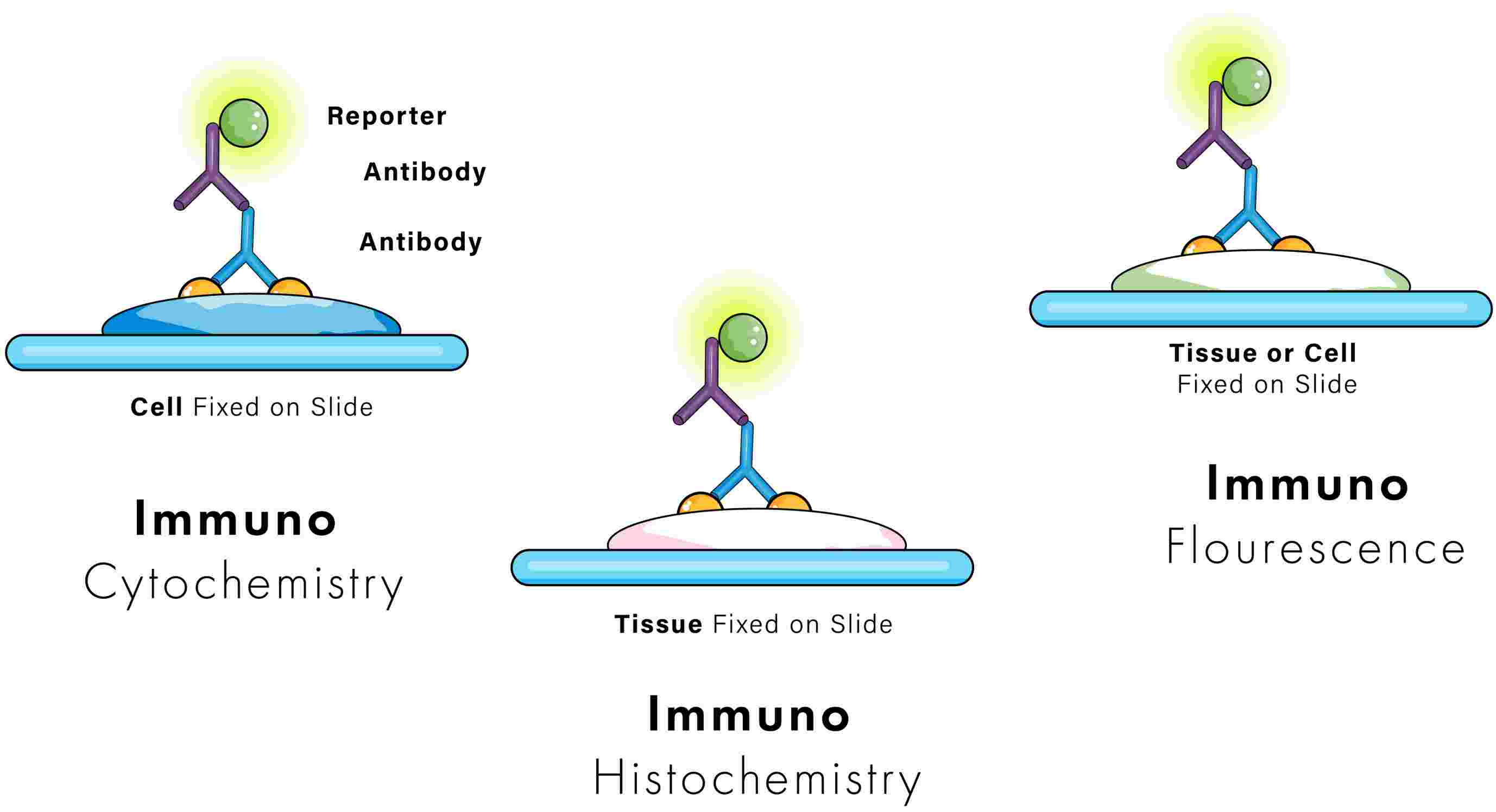
What are the Different Types of ISH?
In situ hybridization (ISH) is a technique used to detect nucleotide sequences in cells, tissue sections, and even whole tissue.

FISH: Fluorescence in situ Hybridization
FISH is commonly used to label DNA, providing information about the location, length, and copy number of a specific gene or chromosome portion.

What are the Different Types of ISH?
In situ hybridization (ISH) is a technique used to detect nucleotide sequences in cells, tissue sections, and even whole tissue.

What is In Situ Hybridization (ISH)?
The visualization of precise spatial and temporal genomic loci and gene expression changes within tissues, cells, or chromosomes, makes ISH a very useful tool for biological and diagnostic applications.

IHC vs. ICC
Both IHC and ICC are important in the fields of biology, biochemistry, genetics, microbiology, and medicine.

IHC vs. IF
IHC and IF are two diagnostic methods that based on the concept of antigen and antibody binding, although the mode of detection in both techniques differ.